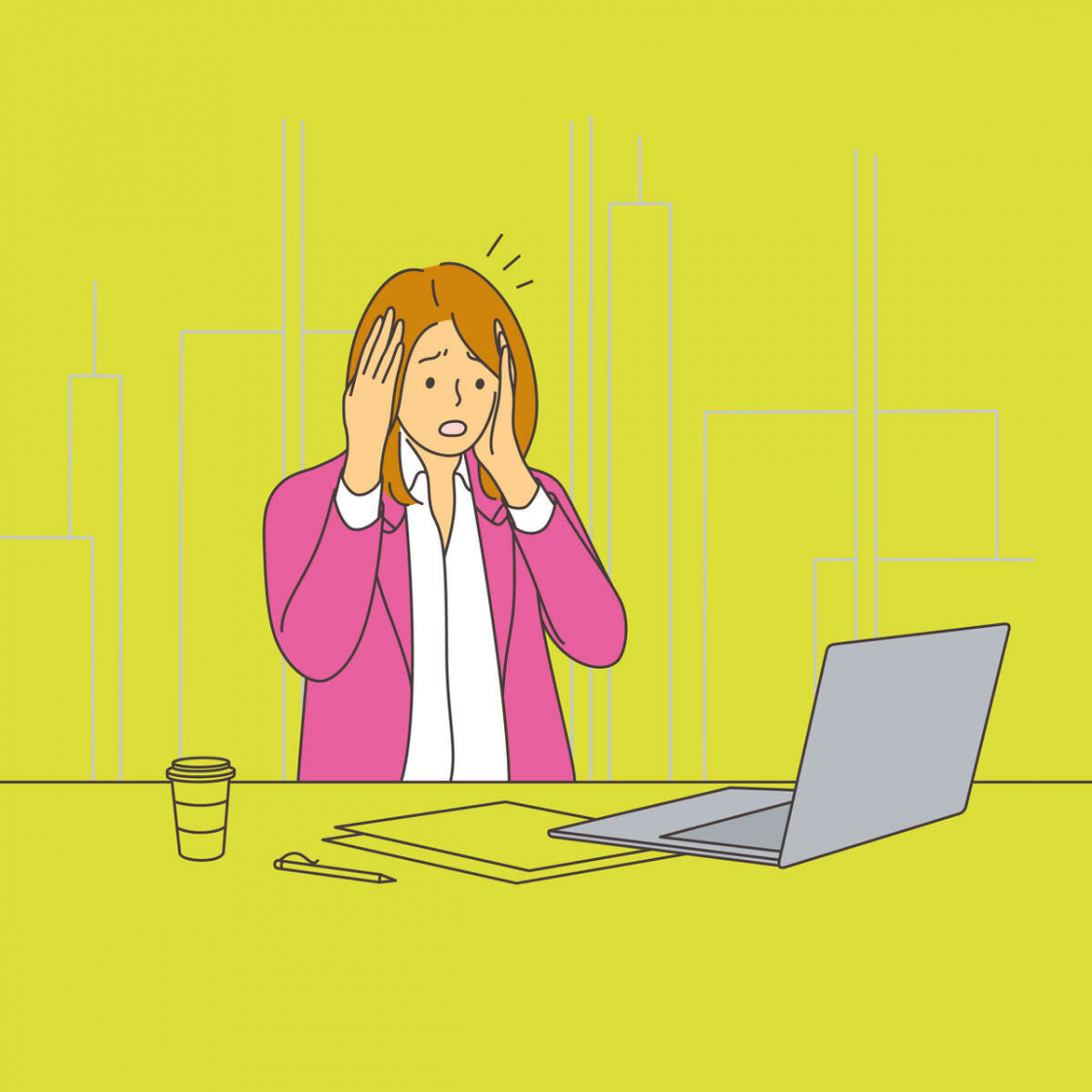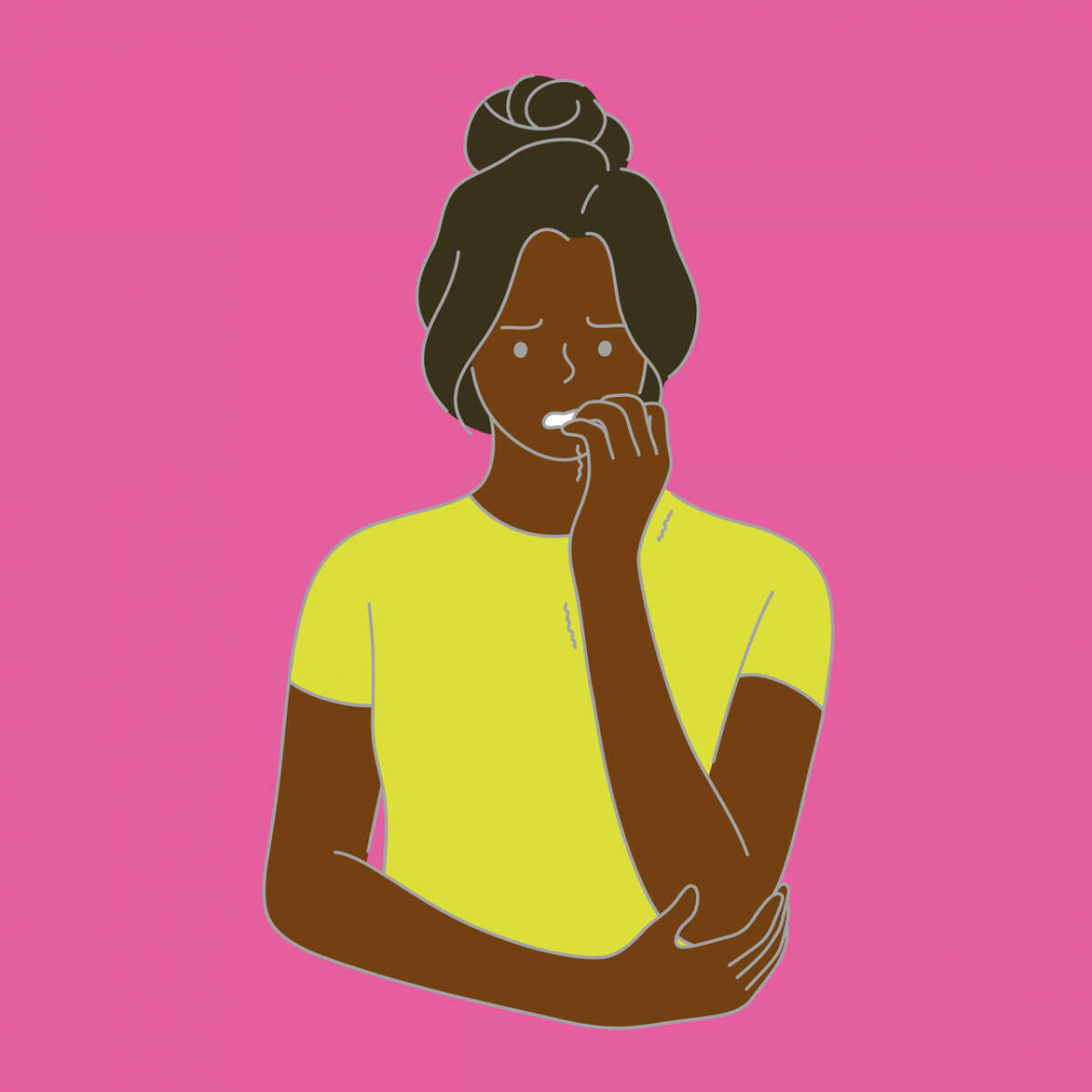‘Generation Anxiety’: why are millennials so anxious all the time?
Written by Amelia Tait
Millennials have repeatedly been labelled the most anxious generation alive – but what is it about the cocktail of modern life that’s shredding our nerves? Amelia Tait investigates.
Christmas was coming and the nurse was getting annoyed. It was 2016, I was 24, and my GP had referred me to the local hospital for an ECG to check my heart. I had been struggling to breathe and feeling tightness in my chest since getting a new (terrible) boss at work, but I hadn’t made that connection yet. All I knew was that it hurt, and it was scary, and as the nurse stuck the sensors to my skin, I could tell she thought I was wasting her time. I was young, after all. “I don’t know if it’s anxiety or if I’m dying,” I wrote in my diary that December. I’m still alive, so I’ll leave you to figure it out.
My anxiety was not an anomaly: statistically and anecdotally, millennials have repeatedly been labelled the most anxious generation alive. In 2018, the American Psychiatric Association found that while anxiety was increasing among baby boomers, millennials remained the most anxious generation overall. Meanwhile, in the UK, a 2020 UCL study found that there was a “substantial increase” in generalised anxiety diagnoses in 18- to 24-year-olds between 2014 and 2018. But why?
Ian Dowbiggin is a professor at the University of Prince Edward Island in Canada and an expert in the history of psychiatry. He argues that the increased levels of anxiety among our generation can be attributed to the fact that we live in an “illness-breeding society”, but also an “illness-affirming society”. There is a difference: “When I say illness-breeding, I’m referring to the many social causes of anxiety in this day and age: people worrying about their jobs, relationships, affordable housing, terrorism… the list goes on and on and on,” Dowbiggin explains. “But on the other hand, we have an illness-affirming society, which essentially preaches the message that it’s understandable to feel anxious… it’s almost natural.”

While we’re seemingly suffering more than ever before, it’s at a time when we’re collectively more open and accepting of discussions surrounding mental health. Acknowledging anxiety and feelings of powerlessness was once stigmatised (think of the stiff upper lip of our grandparents’ generation), but today, says Dowbiggin, it is often validated and even celebrated. “This of course ties into a growing reliance on mental health therapists. There’s this huge industry out there and we are encouraged to rely on their expertise.”
This culture of openness, adds Dowbiggin, is ultimately a good thing: “We’ve been trying to overcome the stigma surrounding mental illness for a long, long time.” And yet it means statistics aren’t always what they seem. Anxiety disorder wasn’t even acknowledged in the Diagnostic and Statistical Manual of Mental Disorders until 1980, but today, people are far more likely to recognise, discuss and seek help for feelings of anxiety, and this inevitably leads to more diagnoses.
Still, we wouldn’t be seeking treatment if we weren’t suffering – so, why exactly are we feeling so anxious? Graham Davey, an emeritus professor of psychology at the University of Sussex (and author of The Anxiety Epidemic: The Causes Of Our Modern-Day Anxieties) thinks the rise can be attributed to some very modern phenomena. “Anxiety is a natural response to threats and challenges in our lives, so the more that society throws these at us, the more we’ll experience anxiety,” he says. He goes on to list “just a few” of these challenges, including the rise of the internet and social media, “which put pressure on youngsters to maintain a ‘perfect’ presence”. Then there’s the availability of 24-hour news (“with stories becoming more and more emotive and visual”), the increased loneliness of our generation, not to mention recent shifts to divisive politics and rising inequalities everywhere we look.
With our list of anxiety-inducing issues, it’s easy to see why commentators have labelled millennials the snowflake generation. But there are differences in the way we live: not only are millennials the first generation in recent history that doesn’t have higher living standards than the one before (a recent survey by the Office for National Statistics found over a quarter of people aged 20-34 in the UK currently live with their parents, while workers in their 30s in 2019 were paid 7% less than pre-2008 financial crisis wages), they’re right to be concerned about situations outside of their personal lives, such as the climate emergency. I, for one, am particularly concerned about the fact we were told we had 12 years to solve the climate crisis exactly three years ago, but perhaps my ability to quote those figures is indicative in itself of our biggest problem: we never switch off.

Simon Gottschalk is a sociology professor at the University of Nevada, Las Vegas, who studies the psychological consequences of our increasingly online lives. “Maybe for the first time in history, we have a generation growing up without any sense of privacy and – more alarmingly – accepting it,” he explains. “They have to always be on and they’re always under scrutiny – whatever they do is recorded and can be used against them.” It’s no oversight to say that this has been exacerbated by the Covid-19 pandemic. Over the past two years, we’ve leaned into our screens harder than ever before, ingesting a near-constant diet of Netflix, social media and soul-destroying news headlines. Pair this with a steep decline in social interactions, increased financial insecurity, decreased access to mental health services and the pressures brought about by home working, and it’s no wonder that over a third of adults in Britain said the pandemic had affected their overall wellbeing.
“When I was growing up, post-WWII in the early 60s, the lesson was basically: go to school, do your homework, do what you’re supposed to do and the future is yours,” says Gottschalk. “But young people today cannot possibly grow up with that message.”
And while our problems are societal, the solutions often presented to us are individual: download this meditation app, do some yoga, take some vitamin D. Others argue that we should fight back collectively to create a less anxiety-inducing world, including better workplaces. The pandemic has already provoked some change: the government last year set out new proposals to allow flexible working to be a right for all workers, not just those who’ve been with their company for six months – although these have since been dropped. One 2019 survey of employees from 115 companies found that 39% of people saw a “noticeable improvement in their mental health” when they worked flexibly.
When I quit my job and started working for myself, I left my heart palpitations on my desk next to the meal deal crumbs. Flexible working has done wonders for my everyday anxiety, while therapy has helped me get a handle on my panic attacks. Unfortunately, I can’t do more than a minute of meditation before my mind wanders to how many fish fingers are in the freezer, but then again, Joshua Fletcher – a psychotherapist and author of Untangle Your Anxiety – says that while using meditation for stress and worry is great, it doesn’t necessarily work for disordered anxiety. “The first thing to do is identify what kind of anxiety you have and then look at tailored psychoeducation on the topic,” Fletcher says. He warns against a “quick fix” culture when it comes to anxiety disorders and recommends CBT, therapy and books: “Anxiety is treatable; it can be overcome regardless of the presentation, but you need the psychoeducation first.”
We may live in an era of 24-hour news and divisive politics, but we also live in an era with unprecedented access to mental health support. The best thing to do is seek it out; only then can we collectively tackle the societal causes of our worries. For a multitude of reasons, millennials are some of the most anxious people on the planet, but we’re also some of the best at seeking help. In the end, my heart trace was normal – but my experiences of anxiety are perfectly normal, too.
If you or someone you know is struggling with their mental health or emotional wellbeing, you can find support and resources from the mental health charity Mind, and NHS Every Mind Matters or access the NHS guide to local mental health helplines and organisations
Images: Shuttershock
Source: Read Full Article


